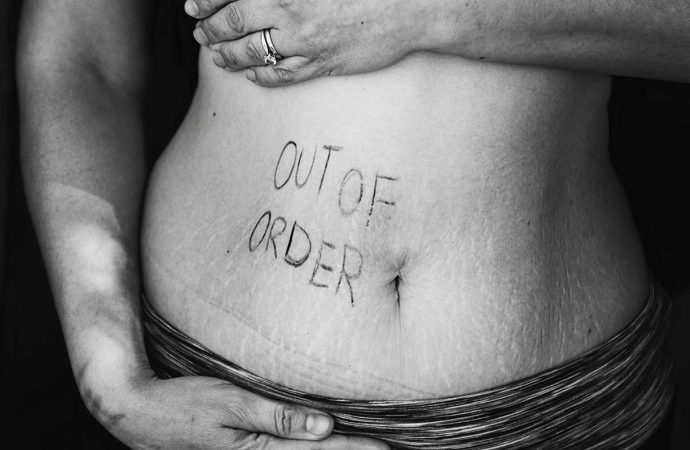Exploring Signs Indicating an Unhealthy Gut Your gut is more than just a system for digesting food; it’s a complex ecosystem hosting trillions of microorganisms crucial for your overall health. While common gastrointestinal symptoms like bloating and constipation may hint at gut issues, there are subtler signs you shouldn’t ignore. Recognizing these signs can help
Exploring Signs Indicating an Unhealthy Gut
Your gut is more than just a system for digesting food; it’s a complex ecosystem hosting trillions of microorganisms crucial for your overall health. While common gastrointestinal symptoms like bloating and constipation may hint at gut issues, there are subtler signs you shouldn’t ignore. Recognizing these signs can help you take proactive steps to restore gut health and improve your well-being.
Signs of an Unhealthy Gut
-
Excessive Sugar Cravings
- Intense cravings for sugary foods.
- Potential imbalance in gut microbiota.
- Solution: Gradually reduce sugar intake, opt for healthier alternatives, and read labels diligently.
-
Food Intolerances
- Digestive discomfort after consuming certain foods.
- Affects around 20% of the population.
- Solution: Keep a food journal, eliminate triggering foods, and reintroduce them under professional guidance.
-
Unintentional Weight Gain
- Weight gain without apparent cause.
- Linked to gut microbiome composition.
- Solution: Embrace a plant-rich diet, high in fiber, and seek professional advice if necessary.
-
Moodiness, Anxiety, and Depression
- Mood disorders correlated with gut health.
- Gut microbiota influence neurotransmitter production.
- Solution: Consider probiotic supplements or adopt a Mediterranean diet for mental well-being.
-
Skin Irritation
- Skin conditions like eczema linked to gut dysbiosis.
- Consumption of certain foods exacerbates skin issues.
- Solution: Opt for an anti-inflammatory diet rich in plant foods and omega-3 fatty acids.

Image by: www.businessinsider.com
Understanding the Signs Deeper
Excessive sugar cravings may indicate a microbial imbalance in your gut. The types of microorganisms residing in your gut can influence your cravings, potentially leading to an overindulgence in sugary treats. Gradually reducing your sugar intake and opting for healthier alternatives can help restore balance to your gut microbiome, ultimately curbing those relentless cravings.
Food intolerances, while not life-threatening, can significantly disrupt your daily life. Digestive discomfort, such as bloating and diarrhea, after consuming certain foods may indicate an intolerance. Keeping a food journal can help pinpoint the culprit, allowing you to eliminate it from your diet and gradually reintroduce it under professional guidance to improve tolerance. Explore More About Health (C. Diff Infections)

Image by: www.goodmorningamerica.com
Unexplained weight gain can be frustrating and may be linked to your gut microbiome. Research suggests that certain gut bacteria can affect energy expenditure and calorie absorption, potentially leading to weight gain. Embracing a diet rich in plant-based foods and seeking guidance from a healthcare professional can help address this issue effectively.
The gut-brain connection is a fascinating area of study, with growing evidence suggesting that gut health influences mood and mental well-being. Mood disorders like anxiety and depression are thought to be linked to abnormal gut function, highlighting the importance of maintaining a healthy gut microbiome through probiotic supplementation or dietary adjustments.
Skin irritation, including conditions like eczema and acne, may be aggravated by an unhealthy gut. Consuming foods high in saturated fat and refined sugar can disrupt gut bacteria balance, contributing to inflammatory skin conditions. Opting for an anti-inflammatory diet rich in plant foods and omega-3 fatty acids can support skin health from the inside out.
| Sign | Symptom | Solution |
|---|---|---|
| Sugar Cravings | Intense cravings for sugar | Gradually reduce sugar intake, opt for healthier alternatives, read labels diligently |
| Food Intolerances | Digestive discomfort after eating certain foods | Keep a food journal, eliminate triggering foods, reintroduce under guidance |
| Unintentional Weight Gain | Unexplained weight gain | Embrace plant-rich diet, seek professional guidance if necessary |
| Mood Disorders | Mood swings, anxiety, depression | Consider probiotic supplements or adopt Mediterranean diet |
| Skin Irritation | Eczema, psoriasis, acne, rosacea, dandruff | Opt for anti-inflammatory diet rich in plant foods, omega-3 fatty acids |
Conclusion
Recognizing the signs of an unhealthy gut is the first step towards improving your overall health and well-being. By addressing these signs through dietary adjustments, lifestyle changes, and professional guidance, you can restore balance to your gut microbiome and optimize your health from the inside out. Listen to your body, prioritize gut health, and embark on a journey towards a healthier you.
















